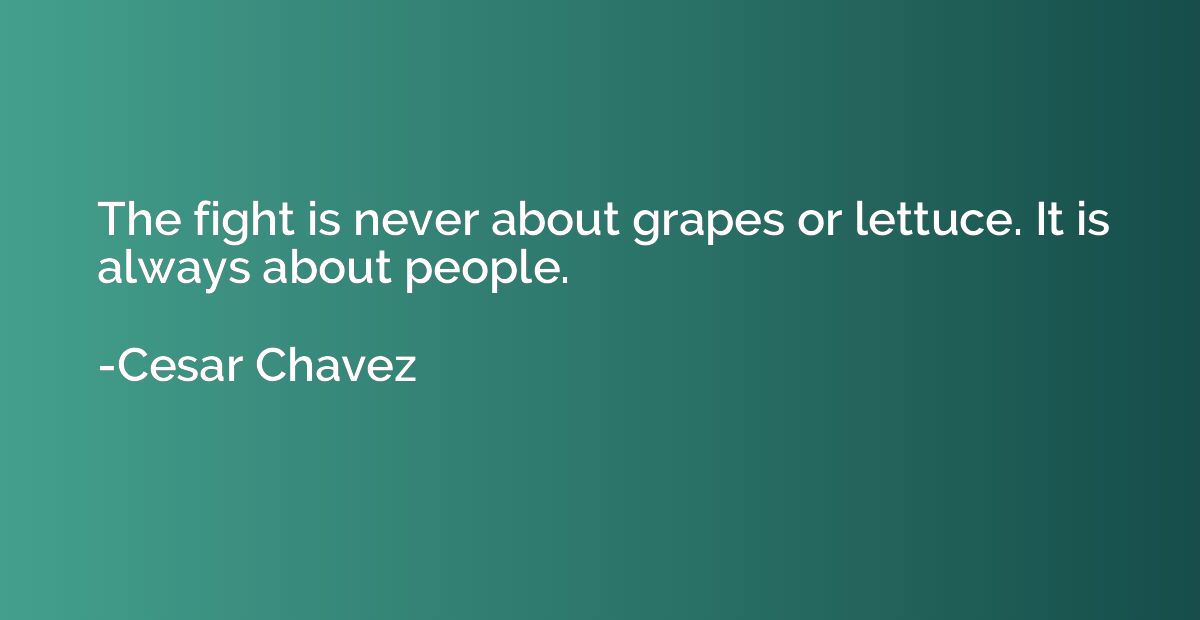Summary
This quote suggests that conflicts or disagreements are not simply about the superficial issues at hand, such as grapes or lettuce, but rather about deeper underlying matters concerning people. It implies that conflicts often arise from personal differences, values, or emotions rather than the tangible objects or circumstances being discussed. The quote reminds us to look beyond the surface level and to focus on understanding and addressing the personal or interpersonal aspects behind conflicts in order to resolve them effectively.
By Cesar Chavez















